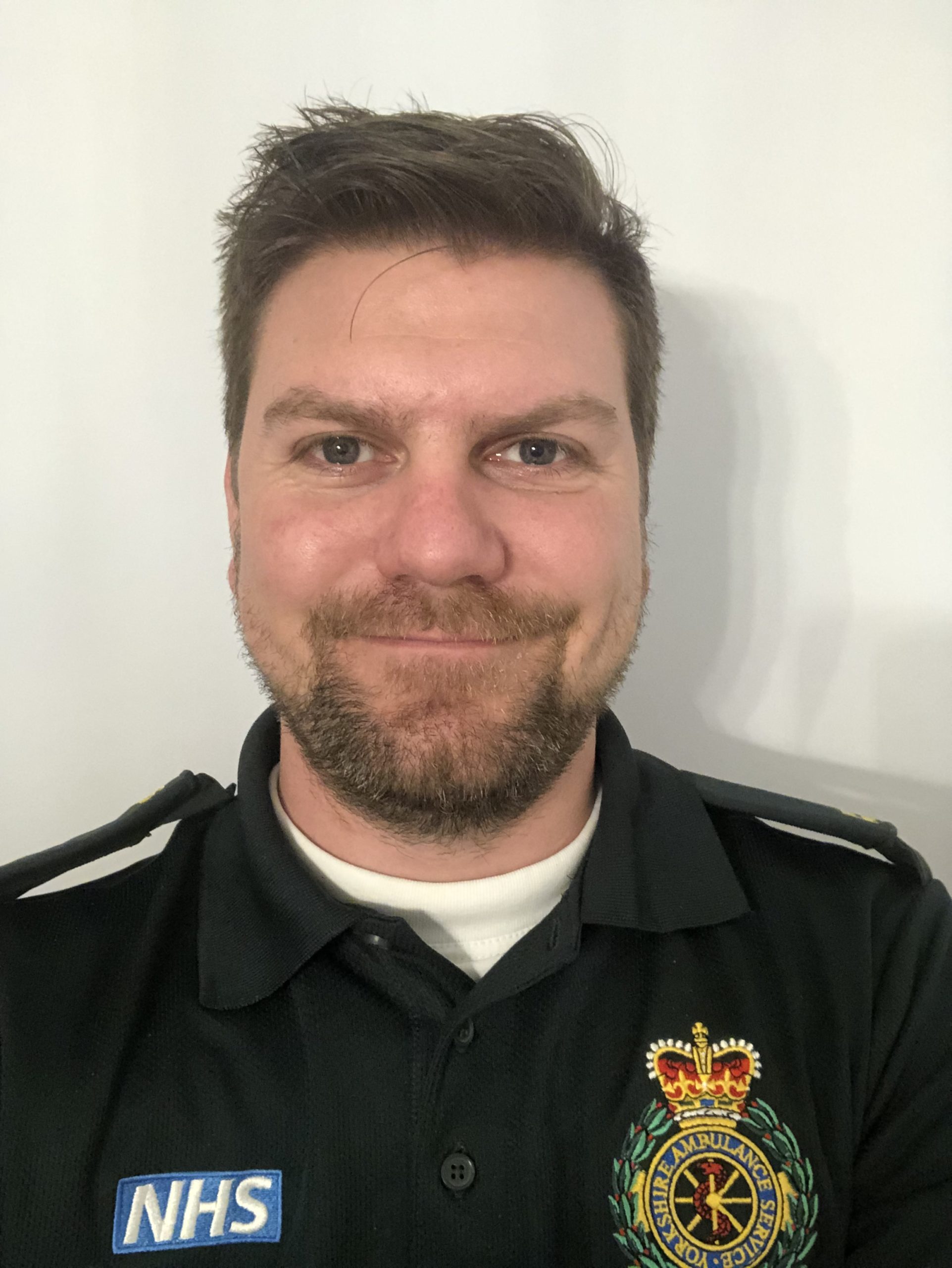How have you got to the position you are now?
When I completed my BSc, I worked in London for 3 years to consolidate my knowledge and develop as a paramedic on an ambulance. Family ties led me to relocate to Yorkshire where I grew up. On my return to Yorkshire, I worked as a clinical supervisor mentoring and supporting new paramedics and being the operational commander at large scale incidents or at sporting events. As my interests in mentoring and teaching increased alongside my desire to study an MSc, I embarked on an advanced practice route which led me to placements in GP surgeries, minor injury units and working in ambulance call centres. In 2021 I was appointed as an advanced paramedic which has allowed me to have a varied role and given me the time to pursue research opportunities, teaching and developing colleagues in their roles.
What does a typical day look like?
Because my role is so varied no two days are the same. My focus is supporting staff development in their paramedic roles. This may involve working with other NHS organisations to secure placements and learning opportunities. It may involve working on an ambulance car providing 1 to 1 coaching. I attend meetings around the health systems in Yorkshire to understand how the paramedic profession can support people outside the ambulance service. I’m also involved in planning and delivering lectures at local universities or within the ambulance service.
What do I enjoy most about being a paramedic?
I enjoy that no two days are the same. When I work clinically, I see a whole range of patients with all manner of health concerns. Because the role is so varied, I’m constantly learning and developing my knowledge and enjoy being able to support and coach my colleagues. I’m lucky in that I get to support and help patients, but I also get to support and help other ambulance staff in their roles.

